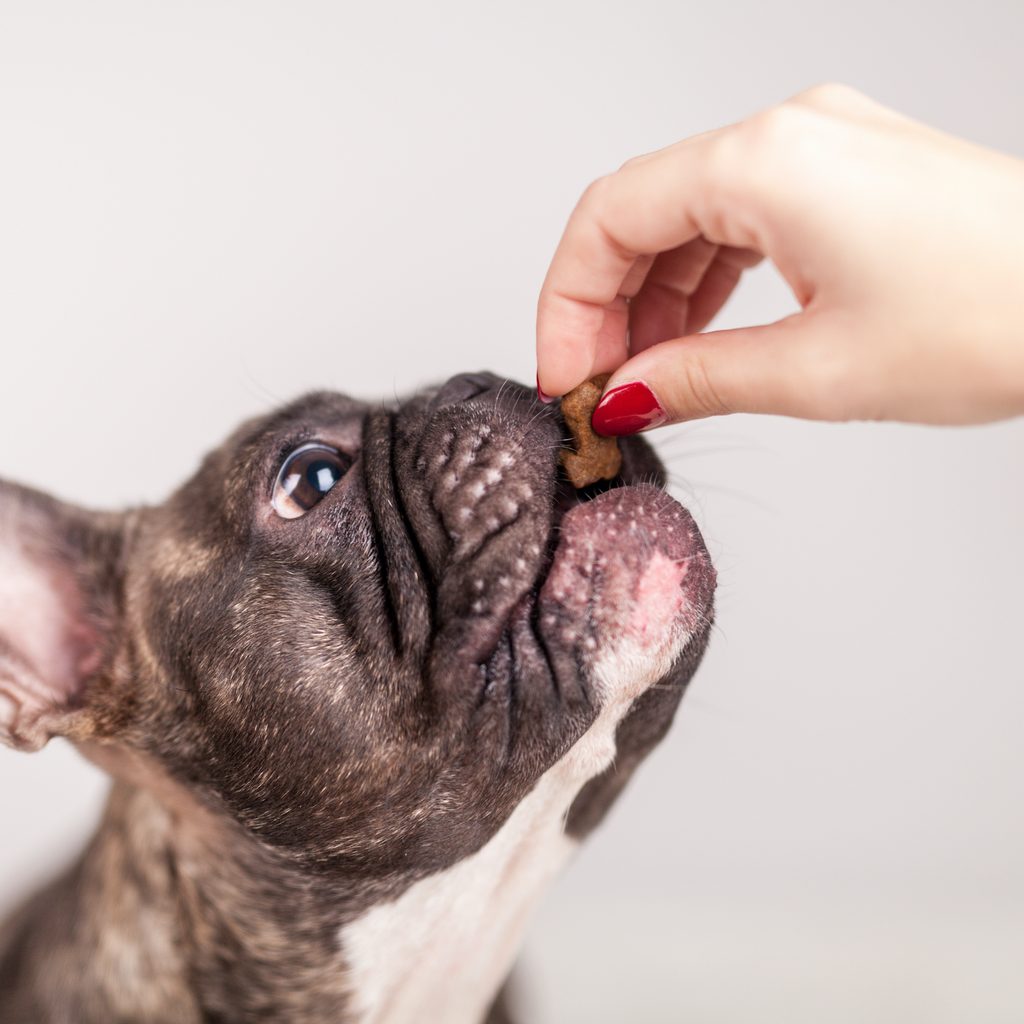How much salt can a dog have? What does salt do for dogs? These kinds of questions are more and more common as dogs become more than just pets — they’re part of the family. Whether Fido snuck a little too much people food or you’re concerned about saltwater ingestion, we’ve got everything you need to know.
When concerning salt, or any nutrient, really, it’s important to remember that moderation is key to a healthy pup. Too much of even a good thing can be a bad thing, and dogs aren’t always the best at portion control. So, is salt bad for dogs? Let’s look:
Is salt bad for dogs?
In its appropriate amounts, sodium, which is the main nutrient found in salt, is essential for a healthy mind and body. The canine dietitians at Iams note that this element helps nerve and muscle function as well as keeping cells in the body from retaining too much or too little water. Sodium can be found in commercial dog foods (as salt) and people food, though many dogs also ingest some sodium from a trip to the ocean, too.
Although sodium is helpful to the body, it can be dangerous in large amounts. Older dogs and dogs with health problems are more likely to suffer from complications of saltwater poisoning, especially if they are battling kidney disease.
Salt poisoning is dangerous because there is no specific treatment for it. Veterinarians have many methods of rebalancing bodily fluids and preventing further problems, but there is no set-in-stone solution. The American Kennel Club (AKC) reports that, sadly, about half of veterinary patients with toxic levels of sodium in their blood do not survive, even with treatment.

How much salt can a dog have?
Luckily, it can take a lot of salt to reach a fatal amount in your dog’s blood — much more than will be found in any commercial dog food. Of course, the bigger the animal, the larger amount of sodium it will take before anything bad occurs. The American College of Veterinary Pharmacists (ACVP) put together a helpful chart to approximate how much salt is considered toxic for different sized dogs:
- X-Small, 1–10 pounds: about 0.05 tablespoons
- Small, 11–25 pounds: about 0.5 tablespoons
- Medium, 26–40 pounds: about 1.3 tablespoons
- Large, 41–70 pounds: about 2 tablespoons
- X-Large, 70–90 pounds: about 3.5 tablespoons
- XX-Large, 90–110 pounds: about 4.5 tablespoons
Please remember that these numbers are on the high end of the spectrum — they are toxic. You should never knowingly let your dog consume nearly this much sodium. Often, toxic levels of salt in the blood are the result of consuming ocean water while visiting the beach, or from some kind of people food. If you stick to dog-safe foods, your pup will be perfectly safe.
What happens if a dog has too much salt?
In minor situations, salt poisoning typically manifests as vomiting and diarrhea, though vomiting is commonly the first symptom regardless of severity (via ACVP). Some owners notice their dog behaving unusually — confusion and lethargy, specifically — shortly before physical symptoms begin. These all start within a few hours of consumption.
In more severe cases, dogs with saltwater poisoning might experience weakness, seizures, muscle tremors, loss of brain cells, and other neurological symptoms. Because of fluid and salt imbalances in the body, sodium toxicity can cause the kidneys to fail in dogs, though previously healthy pets have a lesser likelihood of experiencing this (via AKC).
How to keep salt levels healthy for your dog
Taking a few small precautions makes a world of difference when it comes to salt, so there’s no reason not to. The best thing you can do for your pet is to keep plenty of fresh water nearby at all times, so he doesn’t run the risk of dehydration (this is especially important when spending time around salt water). If you’re at the beach, remember to take a break from the water every now and then — and do keep an eye on your dog’s behavior just in case!
When it comes to your dog’s diet, most cases won’t require much change. If your pup is on the older side or suffers from issues like kidney damage, high blood pressure, or heart disease, though, your vet may recommend switching to low-sodium dog food.
Under your watchful eye and a little guidance, most dogs won’t have any issue with salt throughout their lives. Still, it’s good to know about the hidden dangers of sodium poisoning. With this knowledge, we hope you feel empowered and ready to make the best choices for your favorite furry friend.




